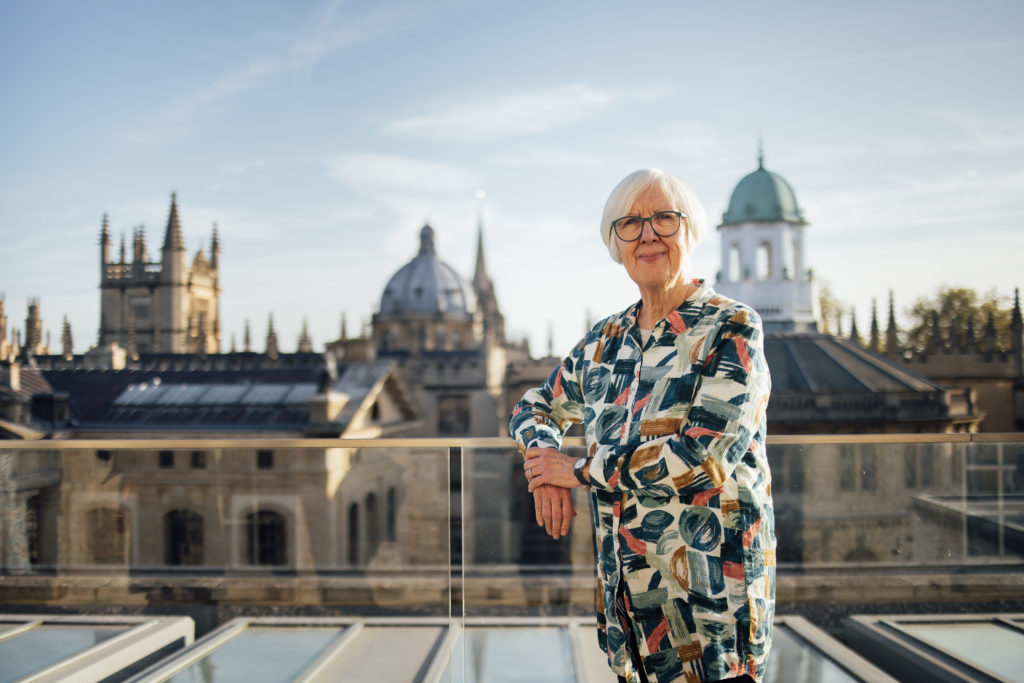
In Conversation: Dame Judith Weir and Professor Martyn Harry
Ahead of Bach 1725, Professor Martyn Harry spoke with renowned composer Judith…

The Cultural Programme and the Bodleian Libraries present
Orchestra of the Age of Enlightenment, directed by John Butt and the Choir of New College Oxford
Book TicketsWednesday 7 May
Manuscript viewing: 6.15 – 7.15pm
Pre-concert talk: 6.30pm (30 minutes)
Concert: 7.30pm (approx. 75 minutes)
Sheldonian Theatre, Broad Street, Oxford, OX1 3AZ
£40, £32, £25, £15.
£10 Students & Under 25’s
Manuscript viewing and pre-concert talk are free to all concert ticket holders.
Ticket sales will close at noon on the day of the concert. There may be a limited number of tickets available on the door on a first come, first served basis.
Manuscript viewing: 6.15 – 7.15pm (Weston Library)
Pre-concert talk: 6.30pm (30 minutes)
Concert: 7.30pm
Please note: Due to high demand, the pre-concert talk has now moved from the Weston Library to the Sheldonian Theatre and is available for anyone on the door with a concert ticket.
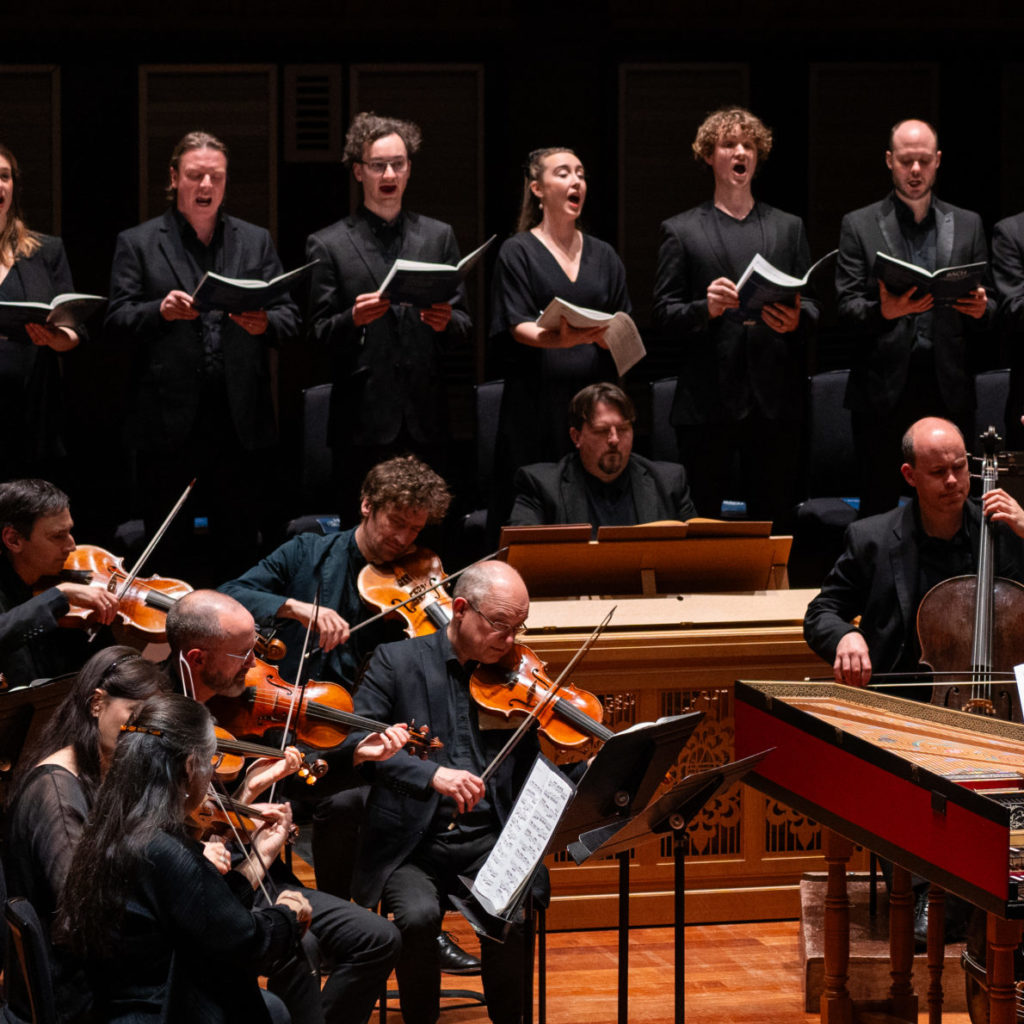
This momentous occasion also marks the arrival of Bach’s rare original manuscript of the cantata, bequeathed to the Bodleian Library, one of only four of the composer’s manuscripts in the UK. This colourful cantata for orchestra, chorus, and soloists was written for its first performance on Ascension Day in May 1725. Three hundred years later, it is the centre-piece of a celebratory concert exploring Bach’s compositions from this post-Easter period in 1725, alongside a newly commissioned piece by British composer Judith Weir inspired by Auf Christi Himmelfahrt allein.
World-leading Bach scholar and performer John Butt directs the Orchestra of the Age of Enlightenment and the Choir of New College Oxford, whose director Robert Quinney has used his extensive knowledge of the manuscript to prepare the choir for this performance.
The manuscript, a tangible link to the past, will be on display in the Weston Library, Bodleian Libraries.
Orchestra of the Age of Enlightenment with members of the Bate Collective
Choir and soloists of New College Oxford
John Butt (director/harpsichord)
J. S. Bach Sinfonia to Cantata BWV42 Am Abend aber desselbigen Sabbats
Daniel Reynolds Smears (premiere)
J.S. Bach Cantata BWV103 Ihr werdet weinen und heulen
Nicholas Samuel The Four Neomartyrs of Rethymnon (premiere)
J.S. Bach Motet: Der Geist hilft unser Schwachheit auf, BWV226
Judith Weir Upwards (premiere)
J.S. Bach Cantata BWV128 Auf Christi Himmelfahrt allein
Sheldonian Theatre, Broad Street, Oxford, OX1 3AZ
The Sheldonian Theatre is located in Oxford city centre on Broad Street, OX1 3AZ. It is approximately a 10-minute walk from Gloucester Green bus station and a 15-minute walk from Oxford railway station
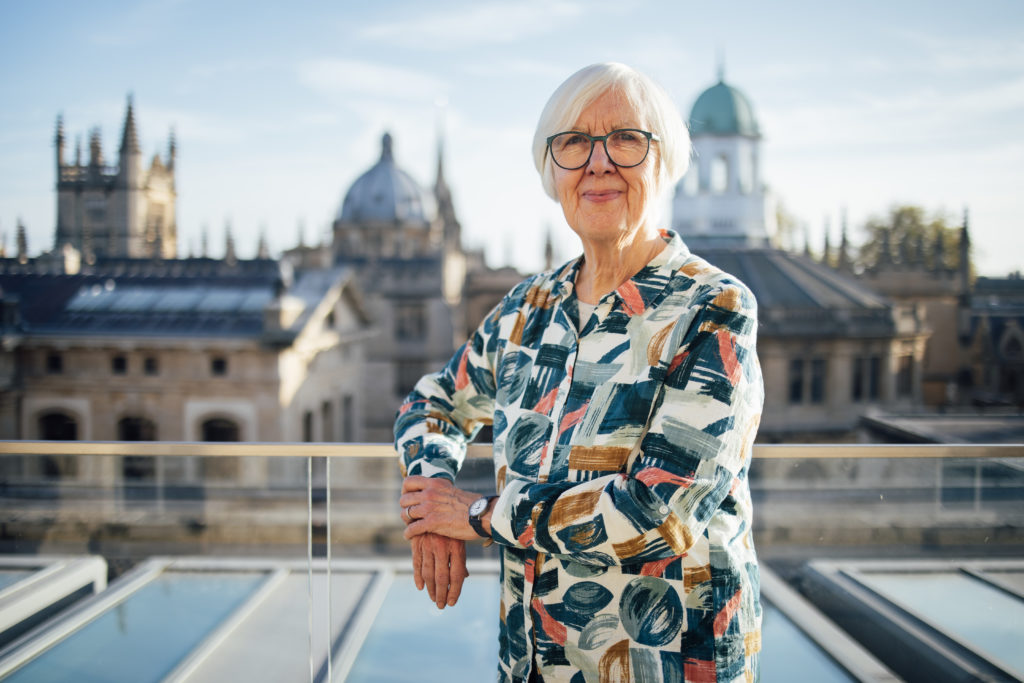

Judith Weir studied with John Tavener, Robin Holloway and Gunther Schuller. On leaving Cambridge University in 1976 she taught in England and Scotland, becoming Associate Composer with the City of Birmingham Symphony Orchestra and Artistic Director of Spitalfields Festival in the mid-1990s, and was the BBC Singers Associate Composers from 2015–2019. She was a Visiting Professor at Princeton (2001), Harvard (2004) and Cardiff (2006–13), and in 2014 was appointed Master of the Queen’s Music, stepping down as Master of The King’s Music in 2024. Weir was awarded a Damehood in the 2024 New Year Honours list for her services to music.
She is the composer of several operas (for Kent Opera, Scottish Opera, ENO and Bregenz) and has written orchestral music for the BBC Symphony, Boston Symphony and Minnesota Orchestras. Much of her music has been recorded, and is available on the NMC, Delphian and Signum labels. She blogs at www.judithweir.com.
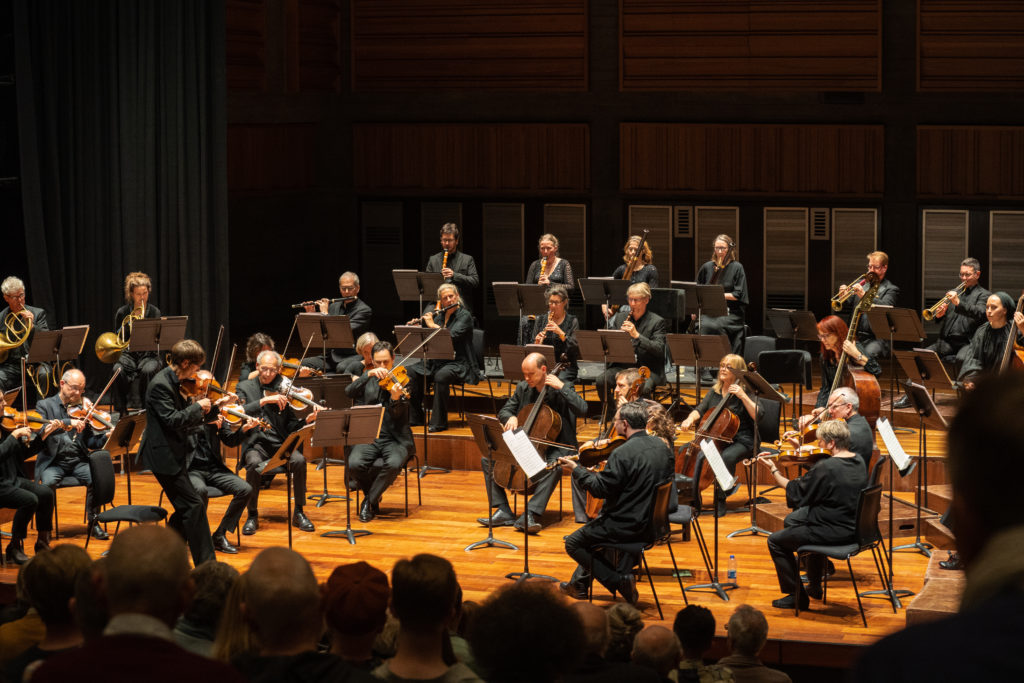

The OAE was formed in 1986 by a group of musicians who took a good look at that curious institution we call the orchestra, and decided to start again from scratch. The Orchestra plays on instruments (or replicas) and use techniques from the time the music was written. This gets closer to the experience audiences would have had at the time the music was written. There are some quite radical differences between historic instruments and modern ones. The name refers to the common term for the explosion of science, philosophy and culture in Western Europe during the 1600s and 1700s, the Age of Enlightenment.
The OAE is an orchestra in residence at the Southbank Centre and Kings Place in London and Glyndebourne opera festival, and tours frequently around the UK and internationally. In 2020, the OAE became the very first orchestra in the UK to take up residence in a school through its embedded education partnership with Acland Burghley School in Camden.
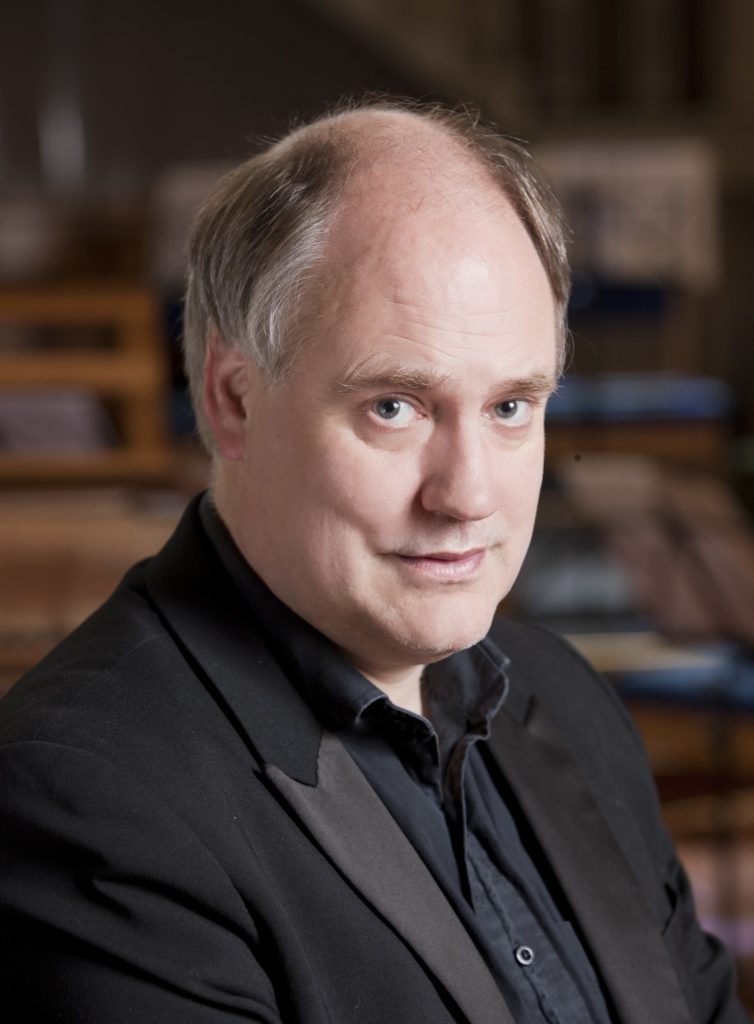

John Butt is musical director of Dunedin Consort and a Principal Artist with the OAE. He was Gardiner Professor of Music at the University of Glasgow, 2001–24, where he continues as an Honorary Professorial Research Fellow. His career began with his appointment as organ scholar at King’s College Cambridge, and this led to various academic and performing posts (including at UC Berkeley, 1989-97). His work, as both musician and scholar, gravitates towards music of the 17th–18th centuries, but he is also concerned with the implications of the past in our present culture. Author of five monographs centering around Bach, the baroque and the concepts of historical performance practice, his recent work concerns music and modernity, listening cultures, and music and film.
He has made 11 recordings on organ and harpsichord for Harmonia Mundi (including the complete organ works of Elgar) and 19 for Linn Records. Highlights, directing Dunedin, include the Gramophone award-winning recordings of Handel’s Messiah and Mozart’s Requiem. A recording of Bach cantatas won a BBC Music Magazine Award in 2021. Further recordings, of Bach Orchestral Suites and Mozart’s Mass in C Minor, were released 2022–23.
He has made multiple appearances at the BBC Proms, London, and the Edinburgh International Festival and toured extensively. As guest conductor he has worked with many period and symphony orchestras such as the Royal Concertgebouw Orchestra, Rotterdam Philharmonic, Stavanger Symphony, the BBC Symphony Orchestra, City of Birmingham Symphony Orchestra, Academy of St Martin’s in the Fields, Hallé Orchestra and BBC National Orchestra of Wales.
Since winning the W.H. Scheide prize for his first book, he has received the Dent Medal of the RMA together with the RAM/Kohn Foundation’s Bach Prize. He has been awarded an OBE, FBA and FRSE, together with the medal of the Royal College of Organists.
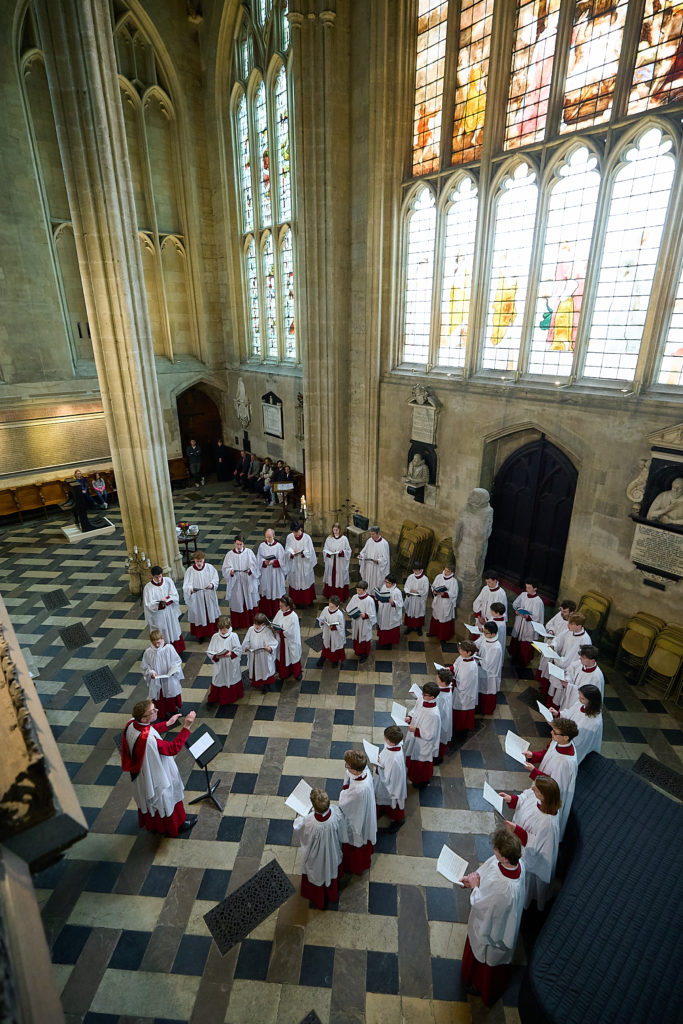

The Choir of New College Oxford, celebrated for its distinctive sound, embodies the splendour of the English choral tradition. The choir is renowned for its versatility, reflected in its diverse core repertoire, with a particular scholarly focus on renaissance and baroque music. When William of Wykeham founded his ‘New’ College in 1379, a choral foundation was at its heart, and daily chapel services have been a central part of college life ever since. The choir comprises sixteen boy choristers and fourteen adult clerks – a mixture of professional singers and undergraduate members of the college.
Touring is an important part of the choir’s profile, and recent highlights have included concerts in New York in 2023, where the choir will return in spring 2026. Future plans include concerts in Sweden in 2025, and China in 2026. The choir has performed with the UK’s finest ensembles, including the Academy of Ancient Music, The Orchestra of the Age of Enlightenment, The English Concert, and more recently with Instruments of Time & Truth in Oxford. Bach is fundamental to the choir’s work, with a regular cantata programme and annual performances of the Christmas Oratorio and St John Passion.
The choir has an impressive discography of over 100 recordings and regularly commissions new music, including James MacMillan’s When one man dies in 2023. 2020 saw their debut recording for Linn Records with John Sheppard: Media vita followed by New College Commissions in 2024. In June 2025 the choir launches William Mundy: Vox patris caelestis.
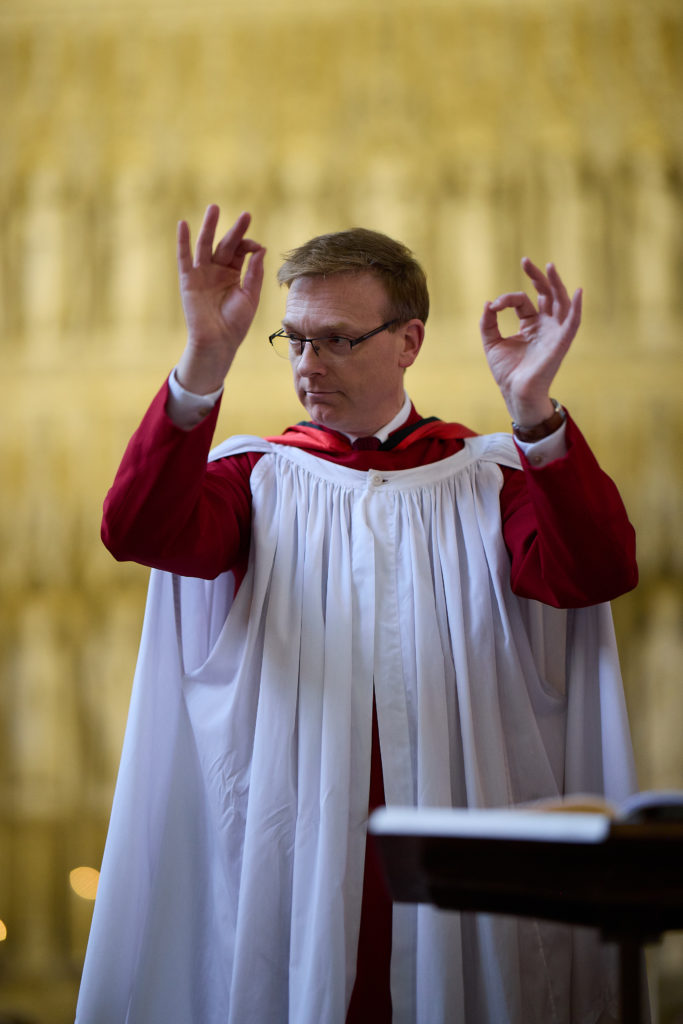

The choir’s Director, Robert Quinney, was born in Nottingham, UK, and began his musical life as a chorister in Dundee Cathedral Choir. He was subsequently Organ Scholar of King’s College, Cambridge, where he completed his undergraduate and graduate studies. A performing career took him to London, where he worked first at Westminster Cathedral, then for nine years as Sub-Organist at Westminster Abbey, during which time he performed at several important national and state occasions – including, in 2011, the Marriage of the Prince and Princess of Wales. After a short period as Director of Music at Peterborough Cathedral he moved to Oxford in 2014.
He directs the world-famous Choir of New College, Oxford, where he is Tutorial Fellow in Music; he is also an Associate Professor in the Faculty of Music. Alongside his work at Oxford he maintains a busy schedule as a solo organist. Since 2022 he has been Director of the Edington Festival of Music within the Liturgy.
His choral and organ recordings have been widely acclaimed: of one disc of organ music by J.S. Bach, Gramophone wrote that ‘Quinney’s Bach gets to the heart of the music with refreshing clarity and a communication born of genuine understanding’. He made his debut at the Royal Festival Hall in 2017, returning there with a second all-Bach programme in March 2023. Away from the UK he has recently given recitals in the Netherlands, Geneva and Stockholm.
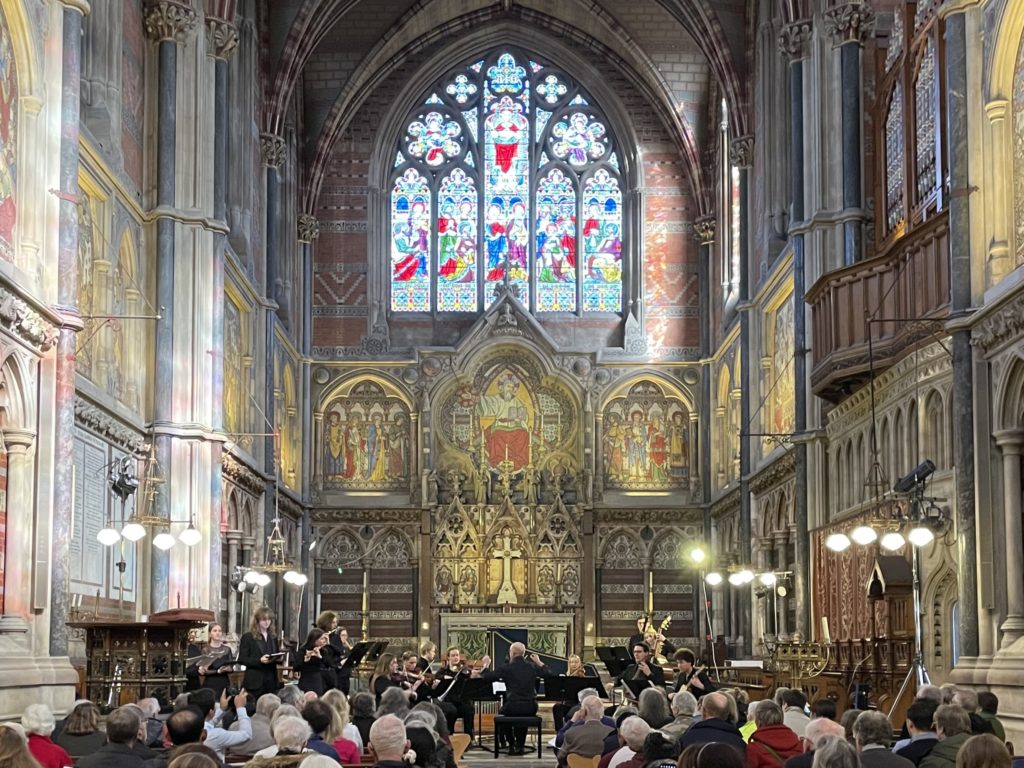

The Bate Collective, founded in 2022, is the Faculty of Music’s ensemble specialising in historically–informed performance. Growing out of the student-formed Bate Players, the group uses period instruments, many of them from the University’s famous Bate Collection. Directed by Dr Jonathan Williams, the ensemble explores music from the Baroque period including vocal, instrumental, and operatic repertoire from Cesis and Cozzolani to Graupner, Heinichen, Bach, and Rameau. The Collective performs regularly at the Keble Early Music Festival and has also performed alongside Instruments of Time and Truth and the Orchestra of the Age of Enlightenment in side-by-side projects.
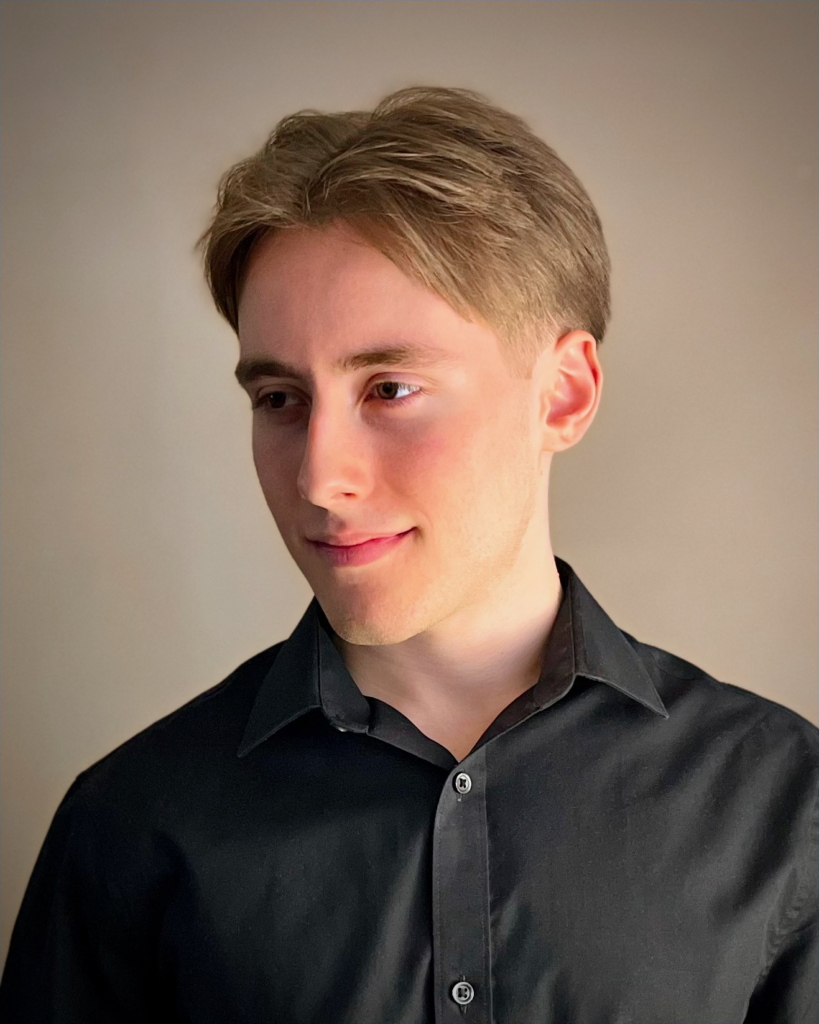

Daniel Reynolds is a composer and instrumentalist studying music at the University of Oxford. His work explores the intersection of Romantic expressivity and contemporary experimental techniques. He is committed to uniting these often-disparate philosophies. Daniel’s piece, Equilibrium, for CHROMA Ensemble, received the joint highest mark in Oxford’s preliminary music exams. He was assistant composer for the Let’s Build a Town project with Music at Oxford earlier this year. He has been invited to compose for the Oxford International Song Festival, and his Piano Concerto was shortlisted in the Oxford Sinfonietta competition. He is a regular composer for the new music group BRICKWORKS.
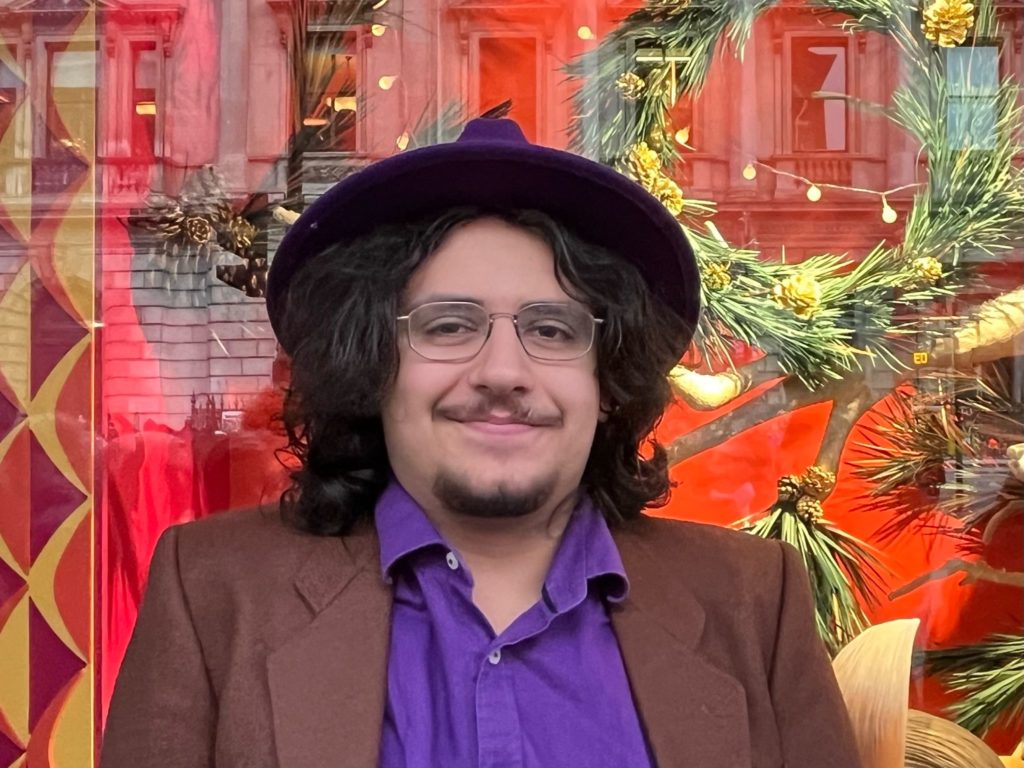

Nick Samuel is a composer and conductor from Kent, currently in his second year reading music at St Anne’s college. Studying piano, trumpet, cello and voice as a child, Nick found a passion for composition when he was twelve. He draws on composers such as Khachaturian and Ginastera for their balance between tonalism and modernism for his own works, and is enthusiastic about researching and discovering composers new to him. Nick is proud to be the director of BRICKWORKS, a group of second year composers presenting their new music, and was recently appointed principal conductor of the Oxford University Wind Orchestra (OUWO).

Ahead of Bach 1725, Professor Martyn Harry spoke with renowned composer Judith…
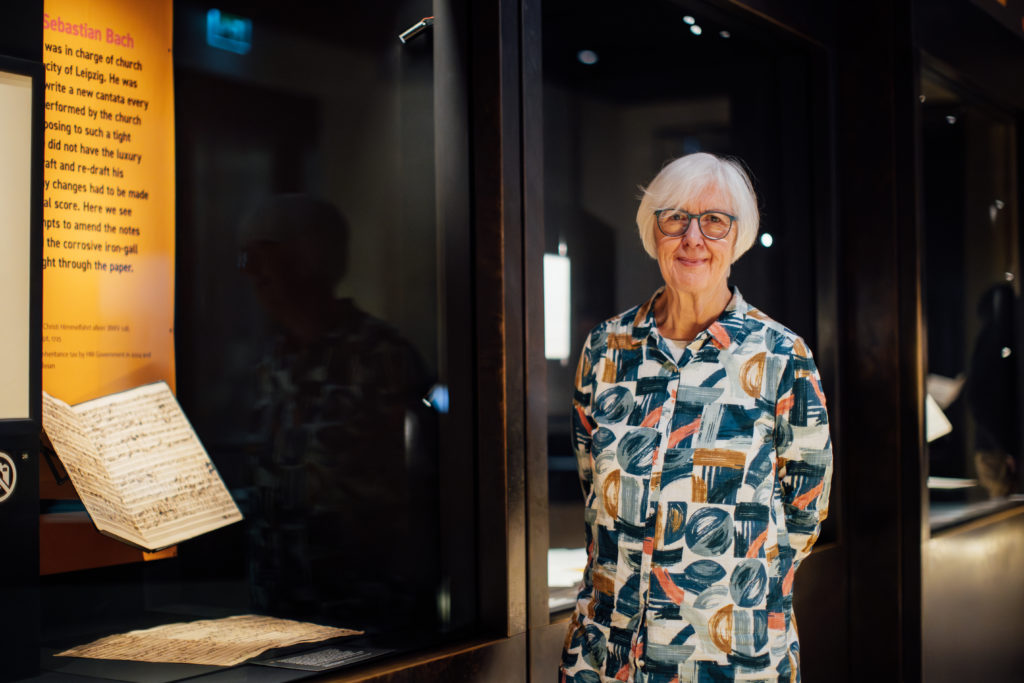
On Wednesday 7th May 2025, the Orchestra of the Age of Enlightenment will mark the 300th anniversary of Johann Sebastian Bach’s 1726 Ascension Day cantata Auf Christi Himmelfahrt allein (BWV 128) with a performance at Oxford’s Sheldonian Theatre produced by the Oxford Cultural Programme.

Ahead of the Bach 1725 celebration this spring, marking 300 years since the first performance of Bach’s cantata for Ascension Day, join Professor Henrike Lähnemann as she explores the life, legacy, and contributions of one of Bach’s key collaborators.
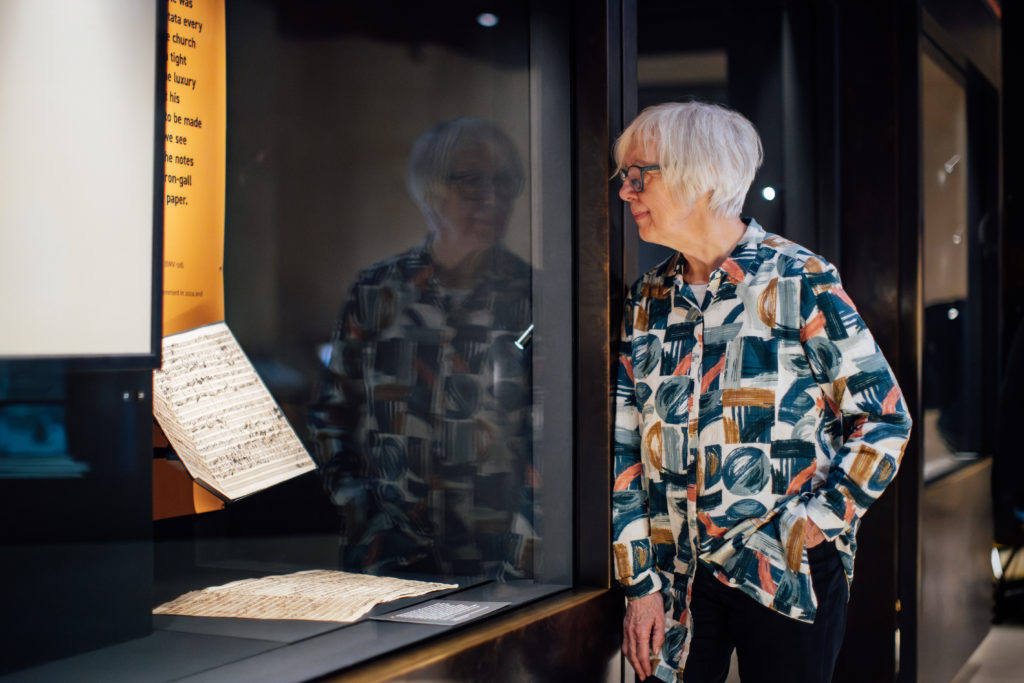
Ahead of the Bach 1725 celebrations on Wednesday 7 May, Martin Holmes, Bodleian Libraries, explores the history of the manuscript and its journey to Oxford.
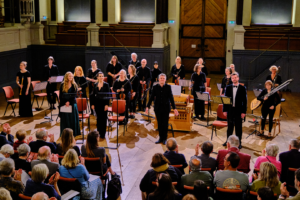
Instruments of Time & Truth
Fri 13 June
Sheldonian Theatre

Mon 12 May
Sheldonian Theatre
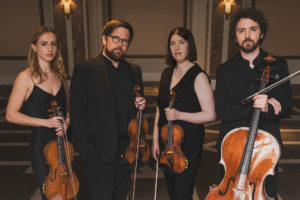
Hans Keller String Quartet in Residence at University of Oxford
Evening celebration concert
Fri 9 May
Holywell Music Room
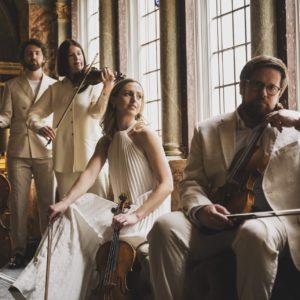
Hans Keller String Quartet in Residence at University of Oxford
Lunchtime celebration concert
Fri 9 May
Holywell Music Room